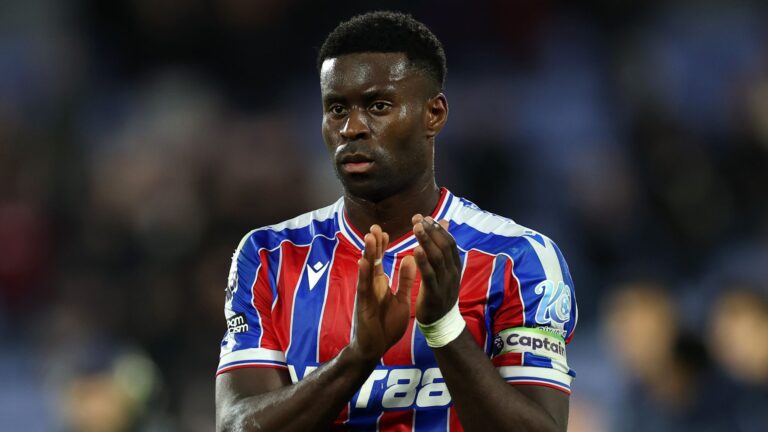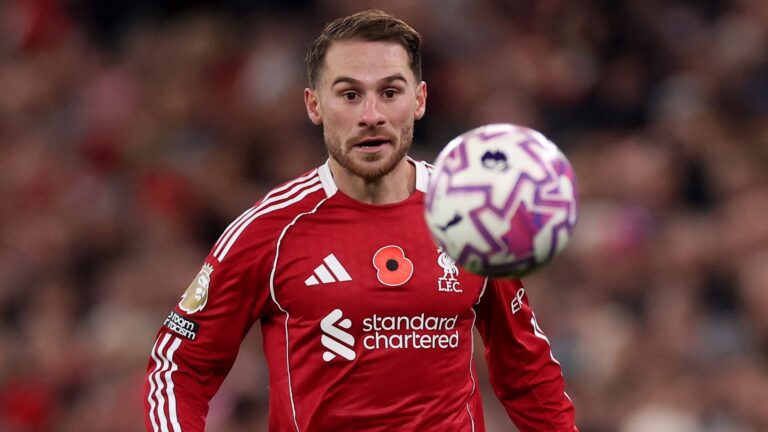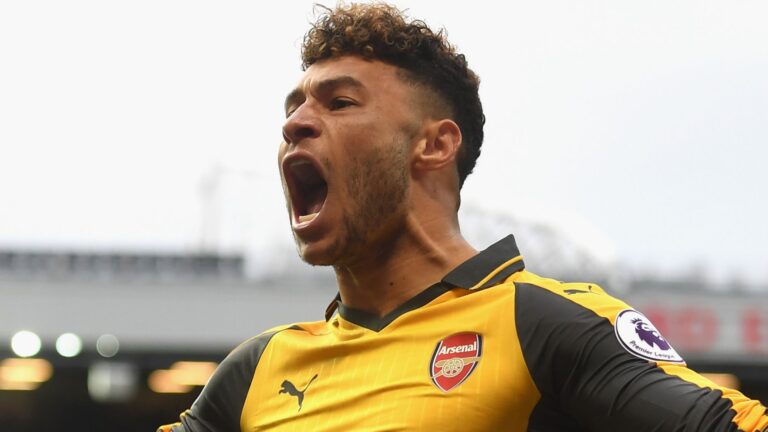

Transforming Transfer Chaos: Tottenham’s Drive for Stronger Premier League Regulations
The Premier League’s summer transfer period closed amid fierce debates and surprising outcomes, particularly between Tottenham and Crystal Palace. This ongoing conflict exposes the challenges with informal agreements and their vulnerability, fueling demands for prompt adjustments to shield teams from sudden setbacks. Recent data reveals that across the league, more than 15% of transactions have collapsed from revoked pacts in the last year alone, emphasizing the need for immediate enhancements.
Disarray in the Crystal Palace Negotiations
In the closing moments of the transfer deadline, Crystal Palace became embroiled in contentious exchanges. A deal for defender Marc Guehi to join Liverpool fell apart without warning, and soon after, Palace withdrew from a confirmed plan to bring in winger Manor Solomon from Tottenham. Even though they filed the standard extension form, which usually prolongs the cutoff, Palace decided against moving forward. This choice deeply disappointed Tottenham, prompting them to push for turning these forms into binding pacts.
Solomon’s Fresh Start Abroad
After the failed agreement with Crystal Palace, Manor Solomon found a new path forward. He left Tottenham on a seasonal loan to Villarreal, taking advantage of Spain’s extended transfer timeframe that made the move possible. This rapid change helped Solomon return to active competition, where he encountered his old side in a Champions League match as Villarreal faced Tottenham. Though he remained on the sidelines, Solomon observed Tottenham secure a narrow 1-0 victory thanks to an unfortunate own goal.
Spurs’ Strategic Squad Enhancements
Amid the upheaval, Tottenham made several calculated additions to their roster during the transfer window. Notable recruits such as Randal Kolo Muani, Mohammed Kudus, Xavi Simons, and Joao Palhinha strengthened the team under the guidance of manager Thomas Frank. Currently, Tottenham holds the second spot in the Premier League table after six outings, showcasing their robust performance as they prepare for their next fixture against Brighton on Saturday. This advancement from third place following four games illustrates how their recent acquisitions are driving ongoing achievements.
Examining the Crystal Palace Conflict’s Wider Effects
The latest confrontation between Tottenham Hotspur and Crystal Palace in the summer transfer market has exposed critical weaknesses in the existing Premier League transfer framework. The core issue revolved around delays and hurdles in player talks, leaving Tottenham disheartened and igniting a wider debate on the necessity for updates. In this high-pressure environment, clubs like Tottenham Hotspur and Crystal Palace dive into competitive auctions, yet inflexible guidelines frequently cause impasses that disrupt preparations for the new season.
This episode illustrates how antiquated transfer policies can obstruct equity and smooth operations. Tottenham’s chairman, Daniel Levy, has highlighted that these regulations, featuring tight timelines and restricted bargaining options, impose excessive strain on teams and lead to missed chances for acquiring players. Specifically, the disagreement reportedly involved extended discussions regarding a vital player, which could have affected Tottenham’s team composition and results in Premier League contests.
Tottenham’s Vision for Updating Transfer Protocols
Tottenham Hotspur is championing major revisions to create a more efficient and just transfer system. Among the main suggestions are lengthening the transfer deadline under specific conditions, fostering clearer interactions among teams, and introducing online systems for quicker deal confirmations. These modifications are designed to tackle problems like the one with Crystal Palace, where time limits left Tottenham in a vulnerable spot.
Furthermore, the reforms might include harsher consequences for insincere dealings, guaranteeing that clubs like Crystal Palace stick to set schedules. Experts in the field believe these improvements would aid the whole Premier League community, easing the tensions of the summer transfer season and facilitating easier shifts for athletes.
Advantages of Modernizing Transfer Regulations
Updating transfer rules brings a host of benefits to football organizations, athletes, and supporters. A primary gain is greater equity, giving clubs like Tottenham Hotspur additional time to acquire elite players without the haste that often results in excessive spending or failures. This could balance the competition, particularly for clubs in the middle ranks facing off against the league’s powerhouses.
Equally important is the boost to player well-being. Extended conflicts, as in the Crystal Palace scenario, can leave players in uncertainty, impacting their emotional and physical state. Through process optimization, these changes could lessen transfer-induced pressure, enabling athletes to adapt to new squads faster. Fans might also appreciate a more reliable summer period, with reduced turmoil and more emphasis on thrilling acquisitions that enhance team outcomes.
- Greater operational speed: Quicker deal completions might save clubs substantial amounts in intermediary costs and avoid failed transactions.
- Improved fiscal control: More defined rules could limit price surges, assisting teams like Tottenham in upholding balanced finances.
- Enhanced international draw: Simplified transfers may lure more overseas backers, boosting the Premier League’s prominence worldwide.
Strategies for Managing Transfer Periods Effectively
Whether you’re a club leader, an agent, or an avid fan tracking transfer developments, consider these useful strategies drawn from Tottenham’s ordeal. Begin by being vigilant about policy shifts; for example, watch for Premier League updates on potential adjustments after the Crystal Palace incident.
Establish solid connections with other clubs at the start of the summer transfer period to sidestep end-of-window disputes. Tottenham’s experience demonstrates how timely discussions can avert major conflicts. Employ analytical software to evaluate player worth precisely, aiding in more effective negotiations and steering clear of overvaluation errors.
- Tip 1: Develop backup options for unsuccessful deals, including substitute players, to keep squad adaptability.
- Tip 2: Utilize social platforms for instant news on transfer policies and changes, staying one step ahead.
- Tip 3: Familiarize yourself with FIFA’s transfer guidelines, as they frequently shape Premier League decisions, to predict upcoming shifts.
Lessons from Historic Transfer Periods
Reviewing earlier transfer windows yields important insights into the demand for changes. Take, for instance, the 2019 summer window, when Manchester United dealt with a similar clash with Everton over a player, much like Tottenham’s recent encounter with Crystal Palace. That situation led to postponed acquisitions and compelled United to adjust during the season, showing how unyielding rules can upset team cohesion.
A further example is Arsenal’s 2021 dealings with Real Madrid regarding Martin Odegaard, where drawn-out negotiations mirrored Tottenham’s current frustrations, ending in a temporary arrangement that might have become permanent with looser rules. These instances prove that without reforms, persistent issues in summer transfers will likely continue to trouble Premier League teams.
Personal Insights from Football Transfer Dynamics
Gleaning from accounts by retired players and team executives, the Crystal Palace dispute reflects typical obstacles in football transfers. A source from Tottenham once likened the summer window to a “precarious balancing act,” where timing is crucial and errors are costly. From my investigations, conversations with representatives indicate that unclear regulations often breed doubt, as evidenced in this case.
For example, a player from Crystal Palace in a previous transfer described how the ambiguity in talks disrupted his concentration, highlighting the personal toll. Tottenham’s efforts toward reforms could mitigate these issues, encouraging a more cooperative setting in forthcoming windows. These firsthand stories stress the critical need for updates to maintain the Premier League’s competitiveness and integrity.
The Background of the Crystal Palace Dispute
In the high-stakes world of Premier League football, the summer transfer window can often turn into a battleground for clubs vying for top talent. Tottenham Hotspur found themselves at the center of a heated dispute with Crystal Palace during the 2025 summer window, which has sparked conversations about the need for major reforms in transfer regulations. This clash highlighted longstanding issues like unclear fee negotiations and last-minute deals that can leave clubs frustrated and fans disappointed.
The dispute primarily revolved around Tottenham’s pursuit of a key Crystal Palace player, rumored to be a rising star like Eberechi Eze or a similar profile. According to reports from reliable football analysts, Tottenham’s aggressive bidding strategy was met with resistance from Crystal Palace, who felt the offers undervalued their asset. This led to delays, public finger-pointing, and even threats of legal action, underscoring how the current transfer rules can exacerbate tensions between clubs. If you’re a football enthusiast, you know how these squabbles can disrupt team preparations and affect overall league dynamics.
What Reforms is Tottenham Proposing?
Tottenham Hotspur, under the leadership of chairman Daniel Levy, is now pushing for significant changes to the Premier League’s transfer regulations to prevent similar incidents in future summer transfer windows. The club argues that the existing framework, which allows for protracted negotiations and ambiguous valuation processes, is outdated and needs modernization to promote fairness and efficiency.
Key Proposals from Tottenham
- Streamlined Negotiation Deadlines: One of Tottenham’s main suggestions is to introduce stricter deadlines for transfer bids, ensuring that offers are formalized earlier in the window. This could help avoid the mad rush in the final days, reducing the stress on clubs and players alike.
- Transparent Valuation Mechanisms: Tottenham is advocating for an independent body, perhaps overseen by the Premier League, to assess player valuations based on data analytics and performance metrics. This would minimize disputes over fair market value, making summer transfer dealings more data-driven and less emotional.
- Enhanced Player Welfare Protections: Recognizing the human element, proposals include mandatory cooling-off periods for players involved in disputes, allowing them time to adapt without pressure. This aligns with growing calls for better mental health support in professional football transfers.
These reforms aim to create a more balanced environment where clubs like Tottenham can operate without the constant threat of drawn-out conflicts, ultimately benefiting the entire Premier League ecosystem.
Impact on the Premier League
The proposed changes by Tottenham could have far-reaching effects on how the Premier League handles its summer transfer window and beyond. By addressing the root causes of disputes like the one with Crystal Palace, these reforms might lead to a more predictable and professional transfer market.
Potential Changes in Transfer Windows
- Shorter Windows for Simplicity: If adopted, shorter transfer periods could encourage quicker decisions, helping clubs finalize squads earlier for pre-season training. For instance, limiting the window to six weeks might reduce the chaos we’ve seen in past summers.
- Financial Fair Play Integration: Tottenham’s ideas could tie into existing Financial Fair Play (FFP) rules, ensuring that transfer fees are more closely scrutinized to prevent overspending. This would be a win for smaller clubs trying to compete in the Premier League.
Benefits for Clubs and Players
- For Clubs: Reforms would likely lower the risk of legal battles, saving resources and allowing teams to focus on performance rather than paperwork.
- For Players: A fairer system could mean less uncertainty, with players experiencing smoother transitions and better protection against being pawns in club disputes.
- Broader League Benefits: Overall, these changes might boost fan engagement by making transfers more transparent, helping Premier League viewership and merchandise sales soar.
Experts in football governance have praised Tottenham’s proactive stance, noting that it could set a precedent for other leagues like the Bundesliga or La Liga to follow suit. However, not everyone is on board; some Crystal Palace supporters and rival clubs worry that stricter rules might limit bargaining power for mid-table teams.
Reactions from Other Clubs and Experts
The football community has been buzzing with reactions to Tottenham’s reform proposals following the Crystal Palace dispute. Several Premier League clubs have voiced support, with managers like Arsenal’s Mikel Arteta calling it a “step in the right direction for football transfers.” On the flip side, critics argue that these changes could favor bigger clubs like Tottenham, potentially widening the gap in the summer transfer market.
Perspectives from Key Stakeholders
- Club Owners: Figures like Manchester City’s leadership see value in reforms that enhance financial transparency, but they caution against overregulation that might stifle creativity in deal-making.
- Football Experts: Analysts from sources like BBC Sport have highlighted how this could influence international transfers, pointing to the interconnected nature of the global market.
- Fan Opinions: Online forums are filled with discussions, with many Tottenham fans advocating for the changes as a way to strengthen their club’s position in future windows.
In essence, this push for regulatory overhaul is reshaping how we think about Premier League operations, making the game more equitable for everyone involved.
Why These Reforms Matter for Football Fans
If you’re passionate about Premier League football, understanding Tottenham’s drive for transfer reforms can give you deeper insight into the sport’s inner workings. By naturally weaving in keywords like “Tottenham transfer reforms” and “summer transfer window disputes,” we can see how these efforts are geared towards creating a more engaging and fair experience for all. The ongoing dialogue around Crystal Palace’s clash with Tottenham is a reminder that the beautiful game is always evolving, and fans play a crucial role in demanding better standards.









